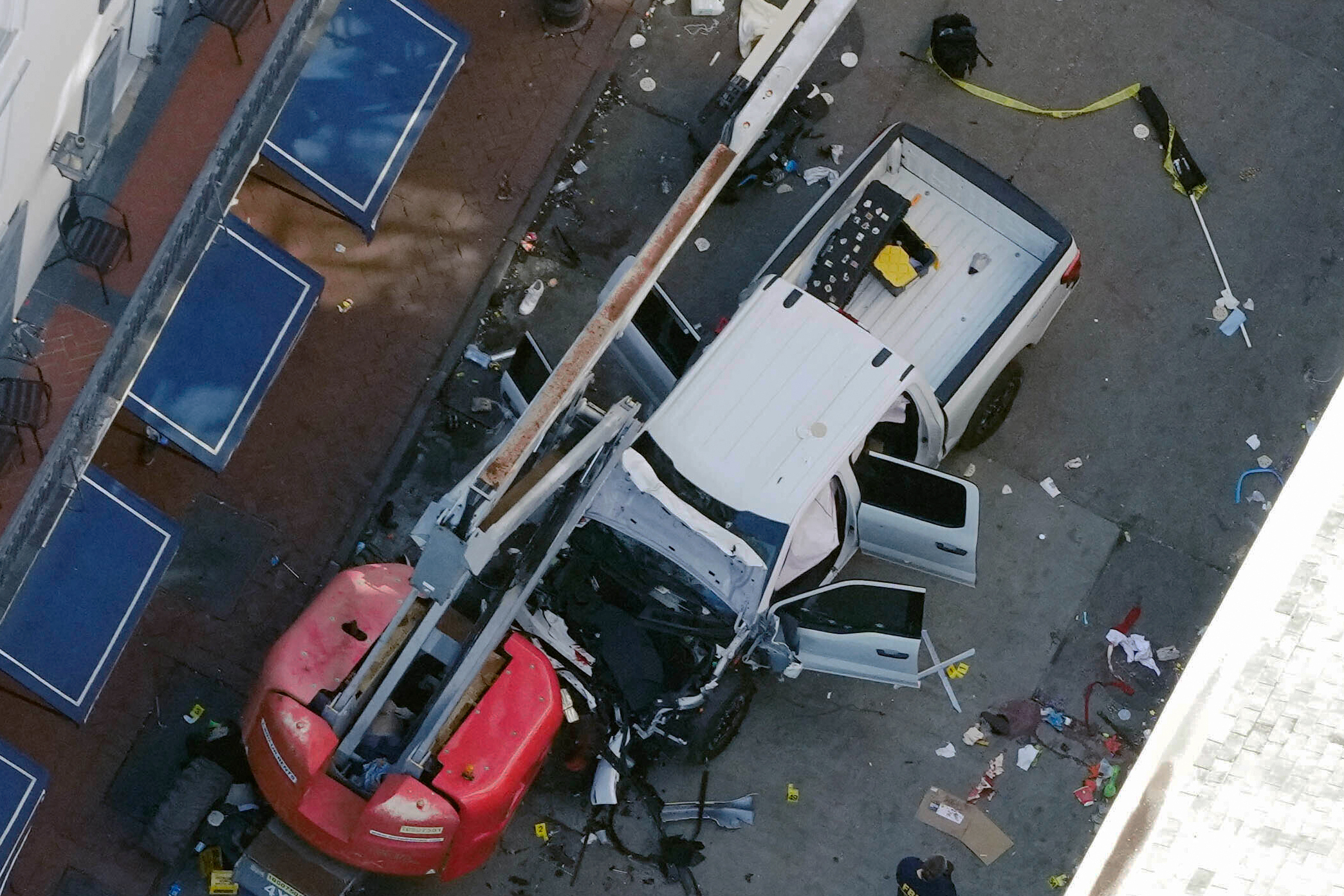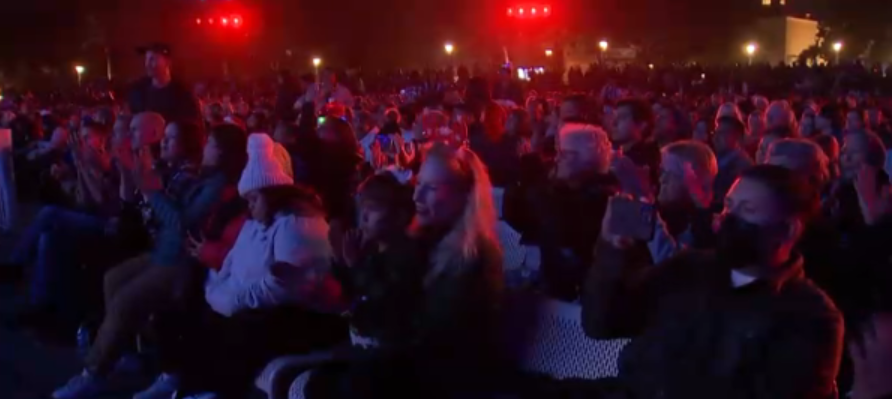Voters endured heat, pouring rain and waits as long as five hours on Tuesday to cast ballots in Georgia, demonstrating a fierce desire to participate in the democratic process while raising questions about the emerging battleground state's ability to manage elections in November when the White House is at stake.
“It’s really disheartening to see a line like this in an area with predominantly black residents,” said Benaiah Shaw, a 25-year-old African American, as he cast a ballot in Atlanta.
A confluence of events disrupted primary elections for president, U.S. Senate and dozens of other contests. There were problems with Georgia’s new voting machines, which combine touchscreens with scanned paper ballots. The polls were staffed by fewer workers because of coronavirus concerns. A reduced workforce contributed to officials consolidating polling places, which disproportionately affected neighborhoods with high concentrations of people of color. Long lines were also reported in whiter suburban areas.
Some voters said they requested mail-in ballots that never arrived, forcing them to go to polling places and adding to the lines. Turnout, meanwhile, may be higher than expected as voters said they were determined to exercise their constitutional right after the police killing of George Floyd in Minneapolis and the ensuing demonstrations that swept cities including Atlanta.
Get top local stories in San Diego delivered to you every morning. >Sign up for NBC San Diego's News Headlines newsletter.
“Too many people died for me to have this opportunity,” said Stephanie Bush, a 49-year-old black independent voter in Atlanta. “So for me not to stick it out would be a dishonor to them.”
Former Vice President Joe Biden easily won the state's Democratic presidential primary. He was facing no real opposition but hoped to post a strong showing among Georgia's diverse electorate to show his strength heading into the general election.
But the developments were troubling heading into the fall presidential campaign, which will attract even more voters. Biden and President Donald Trump are expected to fiercely compete in this rapidly changing state. That leaves officials, who have already been criticized for attempting to suppress the vote, with less than five months to turn things around.
Local
Republican leaders blamed the meltdowns on officials in Fulton and DeKalb counties, which are Democratic strongholds with significant black populations.
“When these things arise, and it’s really specifically in one or two counties ... it leads us back to the failure of the management of the county election directors in those counties,” Republican Secretary of State Brad Raffensperger told The Associated Press. “It has nothing to do with what we’re doing in the rest of Georgia.”
Republican House Speaker David Ralston directed leaders of the House Governmental Affairs Committee to investigate the “unacceptable deficiencies” across the state, particularly in Fulton County.
Voters leaving one Fulton County polling place offered words of encouragement to the many people waiting in line well past the already-extended poll closing time of 9 p.m. “Let’s vote this guy out of office,” one said, a reference to Trump.
Volunteers handed out bags of popcorn, chips and candy. People in line smoked cigarettes and cursed the wait. Some said they’d tried to vote earlier in the day but left because the line wrapped around the block.
Democrats insisted the issues were more widespread. About 250 miles (400 kilometers) from Atlanta, Savannah Mayor Van Johnson said he was “inundated” with phone calls from voters reporting “extensive delays.”
The Trump campaign seized on the problems to amplify the president's broader opposition to expanded mail voting this fall.
“The chaos in Georgia is a direct result of the reduction in the number of in-person polling places and over reliance on mail-in voting," said Trump campaign senior counsel Justin Clark. “We have a duty to protect the constitutional rights of all of our citizens to vote in person and to have their votes counted.”
The Biden campaign called the voting problems in Georgia “completely unacceptable" and a threat to free and fair elections.
“We only have a few months left until voters around the nation head to the polls again, and efforts should begin immediately to ensure that every Georgian -- and every American -- is able to safely exercise their right to vote,” said Rachana Desai Martin, the campaign’s national director for voter protection and senior counsel.
Americans also voted in primaries in West Virginia, South Carolina and Nevada. Long lines also plagued voting in Las Vegas, where voters told the AP that they been waiting four and five hours in some cases even as state election officials suggested wait times reached three hours only in one location.
But the tumult in Georgia garnered much of the attention, reinforcing concerns about managing elections amid the coronavirus.
Atlanta Mayor Keisha Lance Bottoms said voters in line at one of Atlanta’s largest precincts reported all the machines were down. She encouraged voters not to give up.
“If you are in line, PLEASE do not allow your vote to be suppressed,” the Democratic mayor tweeted.
Democratic National Committee Chairman Tom Perez said he wasn't surprised that Georgia had voting problems given that the state's elections chief is a Republican. He noted that GOP Gov. Brian Kemp faced allegations of suppressing votes when he oversaw the 2018 elections as secretary of state.
“Republicans want to ensure that it is as hard as possible for people to vote," Perez said.
Kemp was largely silent about the voting problems on Tuesday, aside from retweeting a message from his wife urging people to vote.
Georgia hasn't voted for a Democratic presidential candidate since 1992, but the state is being closely watched by Trump and Biden. The former vice president, in particular, hopes to emerge as the prime beneficiary of energy from the African American community and its white allies, who have held massive protests for more than a week.
His path to the presidency was already focused on maximizing black turnout and expanding his alliance with white suburbanites and city dwellers, young voters, Asian Americans and Latinos. Trump, meanwhile, hoped to demonstrate strength among his base of white voters in small towns while holding his own in metro areas.
Trump, meanwhile, has virtually no path to reelection without victory in Georgia.
A nearly four-hour wait outside an Atlanta polling site shook Ross Wakefield’s faith in the upcoming elections and people's ability to participate.
“It doesn’t give me a lot of confidence in the future,” said Wakefield, a 28-year-old white software engineer. “Personally, I feel like we’re struggling as a country right now to hear people who really need to be heard, and this does not give me a lot of confidence that we’re doing that.”
___
Peoples reported from Montclair, N.J. Associated Press writers Bill Barrow, Janelle Cogan and Christina A. Cassidy in Atlanta and Michelle Price in Las Vegas contributed to this report.
___
Catch up on the 2020 election campaign with AP experts on our weekly politics podcast, “Ground Game.”



